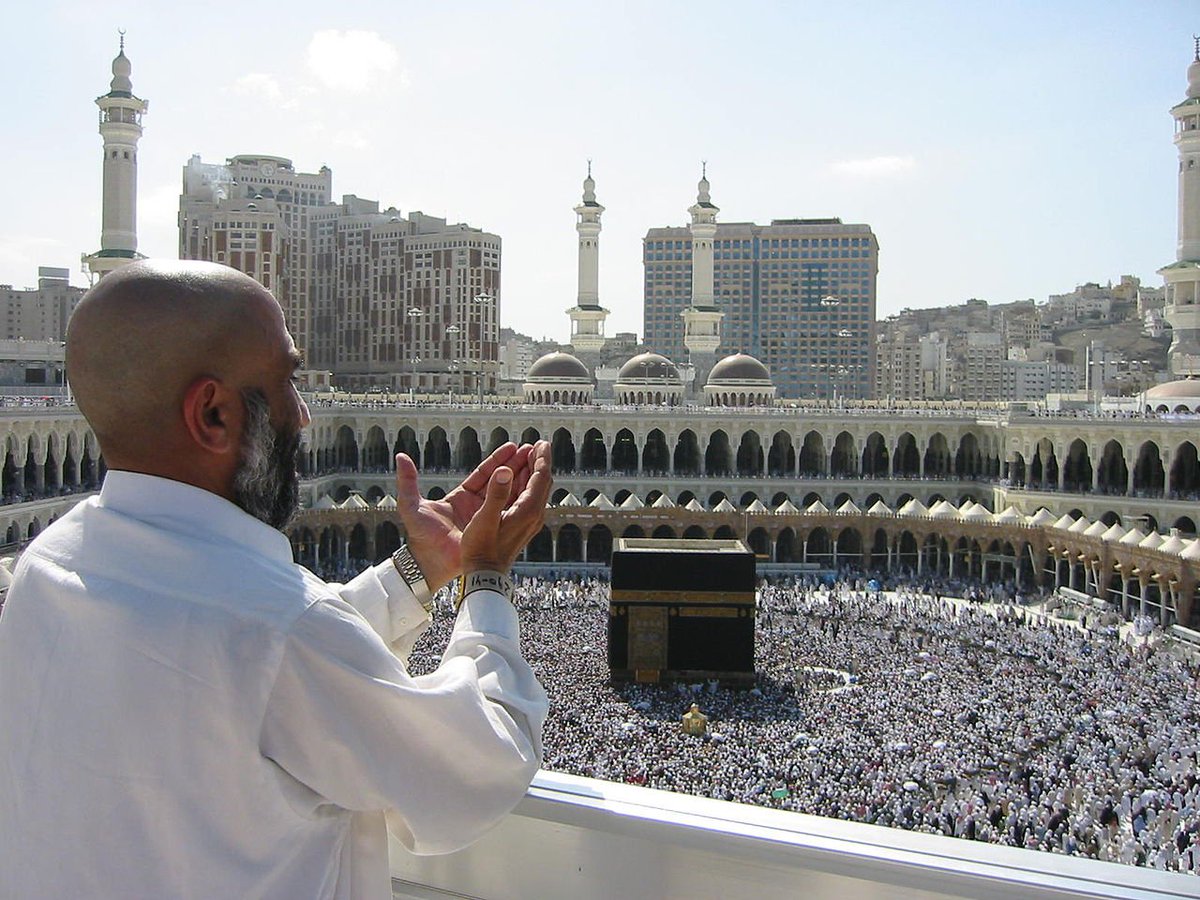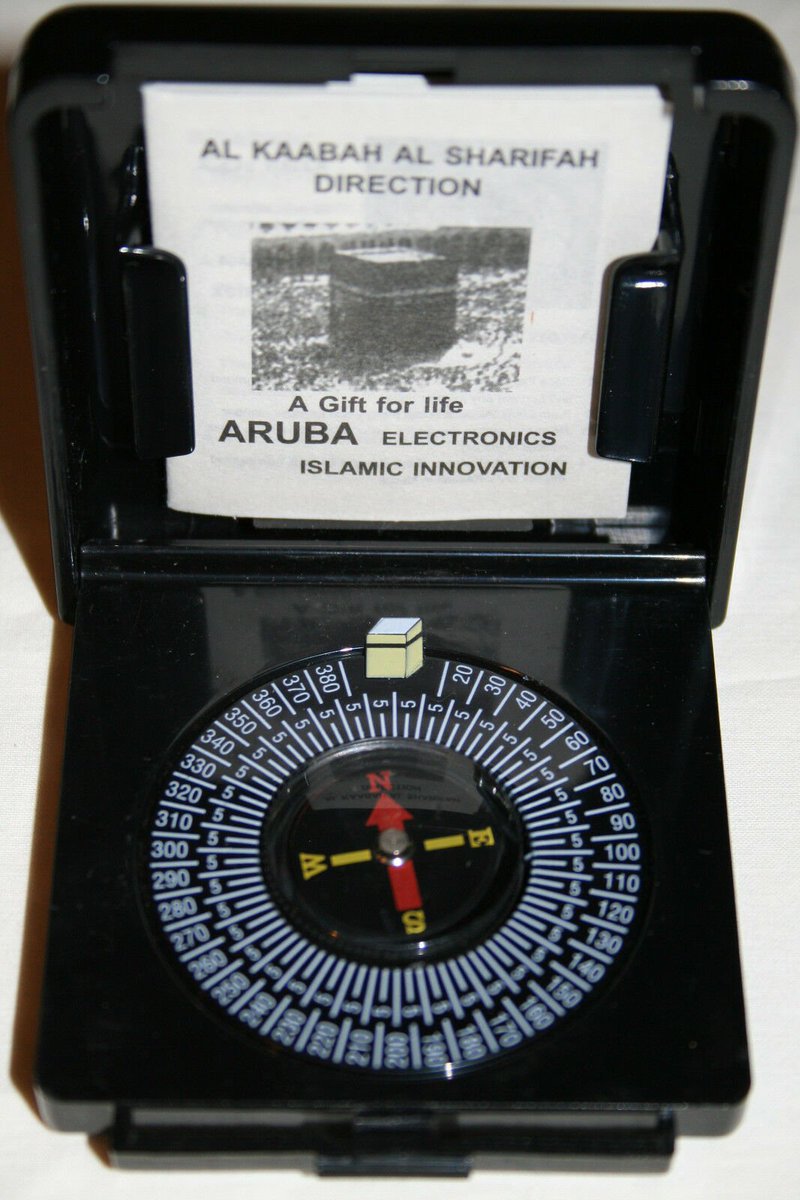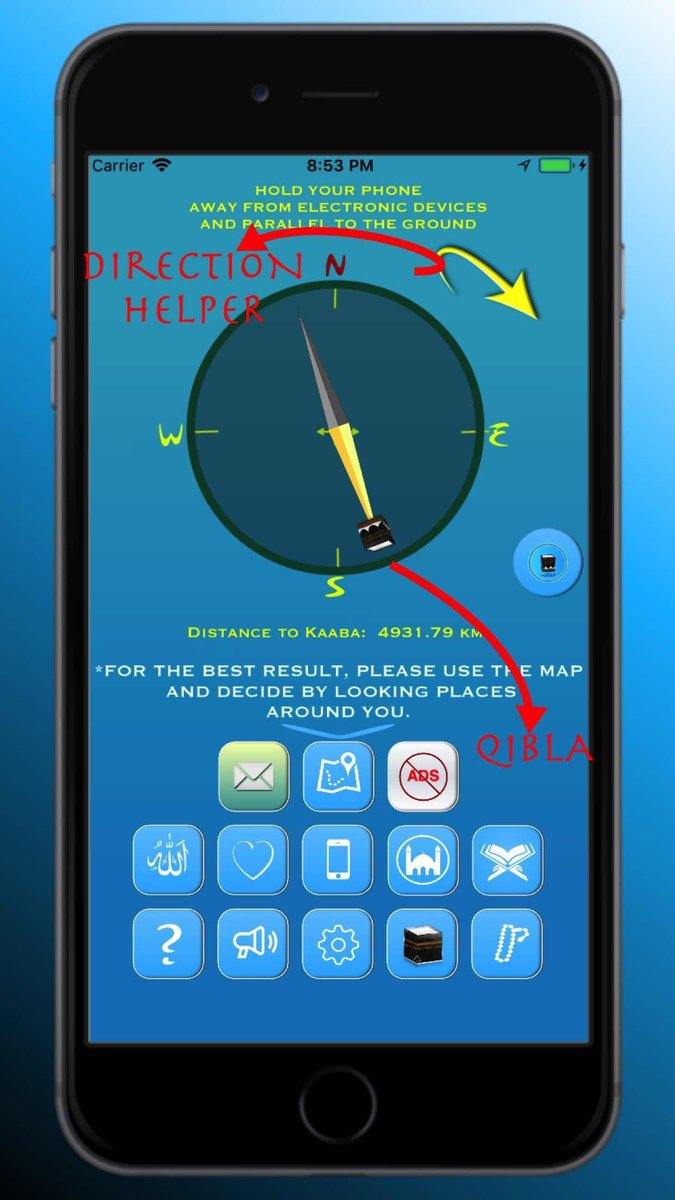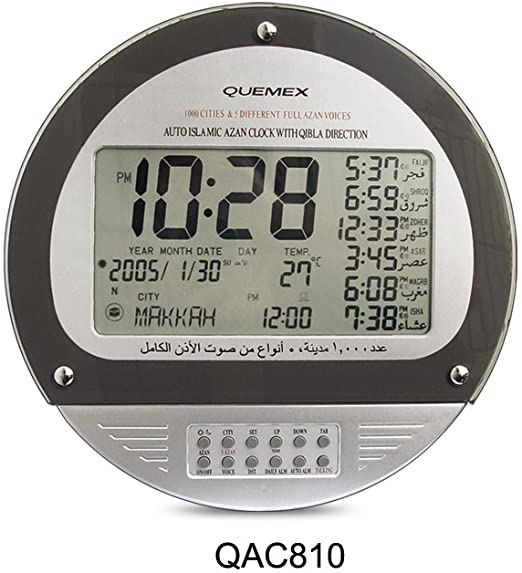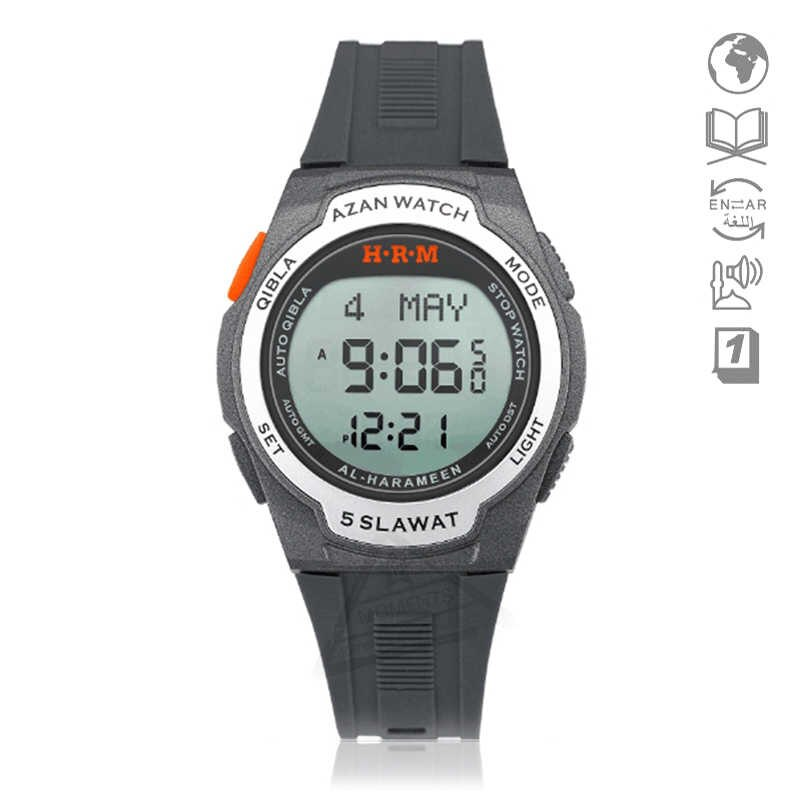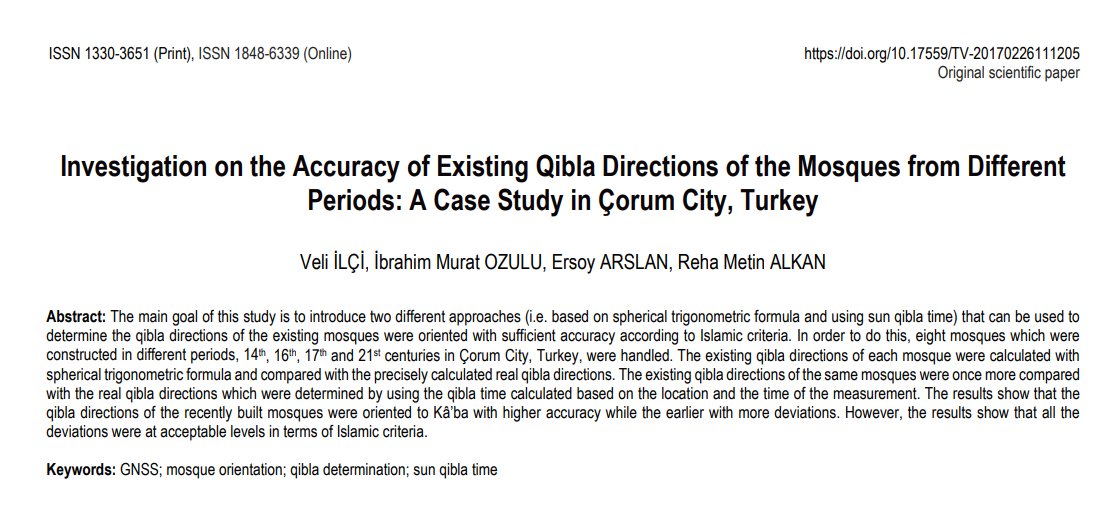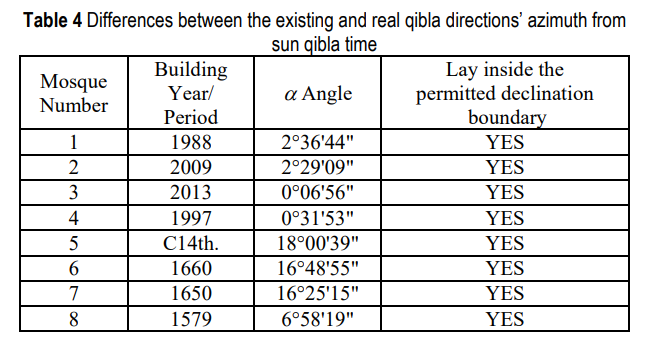I& #39;m always interested in the intersection of technology and religion, and an aspect I hadn& #39;t looked into too much before is the Qibla (which means "Direction")
It& #39;s the direction of the Ka& #39;bah in the Sacred Mosque in Mecca, which is important for prayer and other rites in Islam.
It& #39;s the direction of the Ka& #39;bah in the Sacred Mosque in Mecca, which is important for prayer and other rites in Islam.
Naturally, you& #39;d know the direction from where your home and your mosque (I believe mosques are built facing it, so it& #39;s easy to tell from within a mosque) but if you& #39;re traveling, this is something you need to figure out for your current location in the world.
So the simplest sort of technology a traveler could use for this would be a compass. And there are special Qibla compasses, like this one.
See how it has a list of measurements around the circle?
I believe the little booklet lists cities and directions.
See how it has a list of measurements around the circle?
I believe the little booklet lists cities and directions.
So you can look up your current city (or a nearby city), know you need to face a certain direction, and use the compass to figure out which direction that is.
And obviously, in 2020, there are apps for this. Your phone& #39;s compass + GPS can give you a very accurate answer quickly.
One of the questions I had was if there were devices that were just for finding the direction. Like, if it& #39;s the 90s/early 2000s, you& #39;re not gonna have a smartphone, and a compass is simple but clunky, so did anyone make a sort of electronic compass with built in GPS for this?
it just seems the kind of thing that& #39;d be sold to business travelers, like out of Sharper Image...
Anyway it seems the answer is both "yes" and "no", and the reason why is kinda obvious after you see why it& #39;s kinda "no"
Anyway it seems the answer is both "yes" and "no", and the reason why is kinda obvious after you see why it& #39;s kinda "no"
So, knowing the Qibla is important, right? but why is it important? for prayer (Salah). And prayers happen 5 times a day at certain times, right?
So you don& #39;t build a stand alone device that determines Qibla, because you& #39;d build it into a clock!
while looking up info on this I found an interesting paper from 2018 where the authors went to various mosques in Çorum City, Turkey, and measured how accurately they indicated the Qibla, compared against when they were built.
and it turned out that as expected, the accuracy has been getting better over time, with older mosques having a more inaccurate direction.
I& #39;ve talked about this before because in 2006 there was a conference to figure out the guidelines for Qibla (& Salat) for when you& #39;re in space.
Which isn& #39;t just about direction, although that one is definitely tricky.
Basically the guidelines come down to "if you can get an exact Qibla, do. If that& #39;s impossible, face earth. If that& #39;s impossible, face the solar system."
Basically the guidelines come down to "if you can get an exact Qibla, do. If that& #39;s impossible, face earth. If that& #39;s impossible, face the solar system."
Which is nicely forward thinking, since although we& #39;re not likely to be praying from Alpha Centauri anytime soon, it might happen eventually.
The other thing they needed to consider was how you schedule your daily prayer: The ISS is orbiting the earth such that the "days" it sees are 90 minutes long. Do you need to pray 5 times over 90 minutes? Clearly not, but how then do you figure out WHEN you pray?
and their guideline is pretty simple: You use the timezone of your launch site.
So you just use the time at Baikonur Cosmodrome or the JFK Space Center or wherever.
So you just use the time at Baikonur Cosmodrome or the JFK Space Center or wherever.
I don& #39;t think it covers what you& #39;d do if you were born in space and therefore have no launch site timeline to use, but I& #39;m sure there& #39;s time to figure that out before it& #39;s necessary.

 Read on Twitter
Read on Twitter